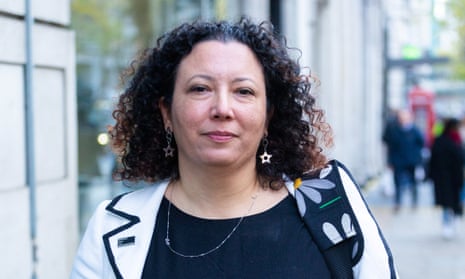A researcher who lost her job at a thinktank after tweeting that transgender women cannot change their biological sex has lost a test case because her opinions were deemed to be “absolutist”.
In a keenly anticipated judgment that will stir up fresh debate over transgender issues, Judge James Tayler, an employment judge, ruled that Maya Forstater’s views did “not have the protected characteristic of philosophical belief”.
Forstater, 45, a tax expert, was a visiting fellow at the Centre for Global Development (CGD), an international thinktank that campaigns against poverty and inequality. Her contract at the charitable organisation, which is based in Washington and London, was not renewed in March after a dispute over publicising her views on social media.
She was accused of using “offensive and exclusionary” language in tweets opposing government proposals to reform the Gender Recognition Act to allow people to self-identify as the opposite sex.
The Central London employment tribunal convened a preliminary hearing over the issue of whether her tweets, such as “men cannot change into women”, should be protected under the 2010 Equality Act. She funded her legal challenge through the CrowdJustice website.
Forstater has been supported by Index on Censorship. Its chief executive, Jodie Ginsberg, has said previously: “From what I have read of [Forstater’s] writing, I cannot see that Maya has done anything wrong other than express an opinion that many feminists share – that there should be a public and open debate about the distinction between sex and gender.”
But in a 26-page judgment released late on Wednesday, Tayler dismissed her claim. “I conclude from … the totality of the evidence, that [Forstater] is absolutist in her view of sex and it is a core component of her belief that she will refer to a person by the sex she considered appropriate even if it violates their dignity and/or creates an intimidating, hostile, degrading, humiliating or offensive environment. The approach is not worthy of respect in a democratic society.”
In response to the ruling, Forstater said: “I struggle to express the shock and disbelief I feel at reading this judgment, which I think will be shared by the vast majority of people who are familiar with my case.
“My belief … is that sex is a biological fact, and is immutable. There are two sexes, male and female. Men and boys are male. Women and girls are female. It is impossible to change sex. These were until very recently understood as basic facts of life by almost everyone.
“… This judgment removes women’s rights and the right to freedom of belief and speech. It gives judicial licence for women and men who speak up for objective truth and clear debate to be subject to aggression, bullying, no-platforming and economic punishment.
“I will consider the judgment closely with my legal team to determine what can be done to challenge it.”
Louise Rea, a solicitor at the law firm Bates Wells which advised the CGD in the case, said: “Judge Tayler held that ‘the claimant’s view, in its absolutist nature, is incompatible with human dignity and fundamental rights of others’. He observed that the claimant was not entitled to ignore the legal rights of a person who has transitioned from male to female or vice versa and the ‘enormous pain that can be caused by misgendering a person’.
“A number of commentators have viewed this case as being about the claimant’s freedom of speech. Employment Judge Tayler acknowledged that there is nothing to stop the claimant campaigning against the proposed revisions to the Gender Recognition Act or, expressing her opinion that there should be some spaces that are restricted to women assigned female at birth. However, she can do so without insisting on calling transwomen men. It is the fact that her belief necessarily involves violating the dignity of others which means it is not protected under the Equality Act 2010.”
Peter Daly, of Slater and Gordon, representing Forstater, said: “The significance of this judgment should not be downplayed.
“Had our client been successful, she would have established in law protection for people – on any side of this debate – to express their beliefs without fear of being discriminated against.”
